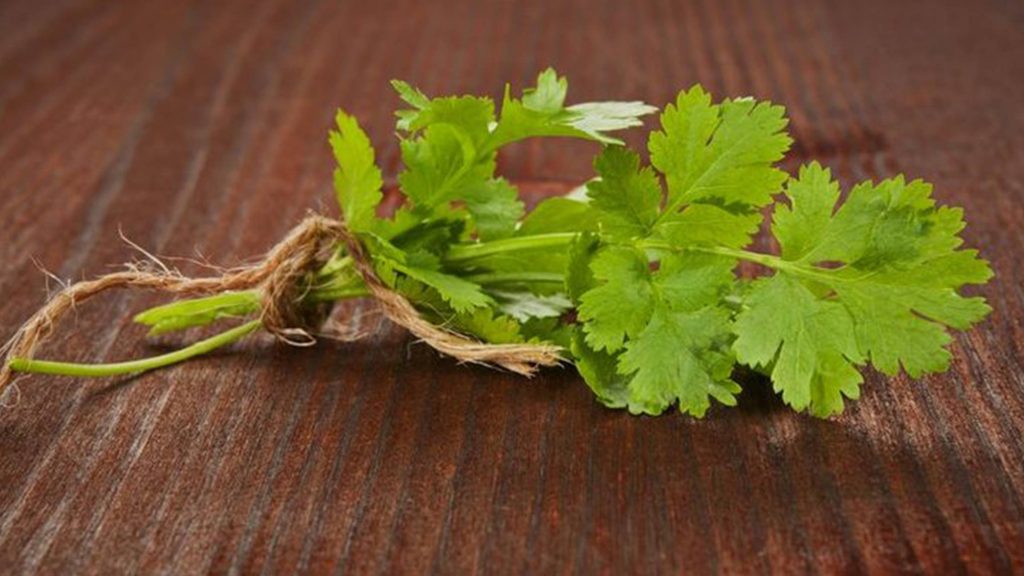When looking for serious health benefits, search no further than your spice cabinet or the produce section of your local grocery store. Here’s a follow up to Healing Power of Herbs and Spices (Part 1) to help you tap into the medicinal potential of culinary herbs and spices.
Coriander (Cilantro)
Fresh coriander leaves (also known as cilantro) provide an array of health benefits. Cilantro leaves are a source of numerous beneficial nutrients, such as vitamin C and vitamin K, along with phosphorous, potassium, thiamin, niacin, carotene, manganese, iron, and magnesium in smaller quantities. Coriander helps boost health in many ways:
- Cholesterol: Coriander is known to help raise good cholesterol and lower bad cholesterol
- Diabetes: Coriander is beneficial helping to stimulate the secretion of insulin, naturally helping to lower blood sugar
- Inflammation: Coriander has natural anti-inflammatory properties, which makes it beneficial for arthritis and auto-immune disorders
- Skin problems: The detoxifying and antiseptic properties of coriander make it helpful for skin problems like eczema
- Digestive problems: Coriander is known to be helpful for nausea and vomiting, as well as for diarrhea. The antimicrobial and antifungal properties are beneficial for helping destroy harmful organisms in the digestive tract. Coriander also helps to stimulate the appetite and relieve indigestion.
- Blood pressure: Beneficial compounds in cilantro help to reduce blood pressure. High blood pressure is a risk factor for a number of serious health conditions, such as cardiovascular disease and stroke.
- Anemia: The high iron content of cilantro makes it beneficial for anemia.
- Allergies: The natural anti-histamine properties of coriander make it useful for alleviating allergy symptoms
- Food poisoning: Salmonella is one of the most common sources of food poisoning in the United States; the CDC estimates that there are as many as 1,200,000 salmonella infections each year. Natural compounds found in cilantro are highly effective for killing salmonella bacteria.
- Eye health: The antioxidants vitamin A, vitamin C, and beta carotene found in coriander are beneficial for preserving eye health and helping to prevent eye disease, such as macular degeneration.
How to Use and Store Fresh Coriander: Fresh coriander leaves are key to obtaining the most benefits of coriander. Coriander can be found in the produce isle of your local grocery store.
Cilantro is a fairly delicate herb so a couple of extra steps will help to keep it fresh longer. First, trim the ends and remove any wilted leaves. Next, dry the moist leaves with a salad spinner and/or paper towels (any residual water causes the leaves to spoil more quickly.) Finally, layer the leaves between dry paper towels in an air tight container. The top and bottom layers should be paper towels.
Cilantro can be used in pesto, salsa, Middle Eastern dishes, Mexican recipes, Thai curry, and Indian recipes, such as chutney.
Black Pepper
Best known for its culinary versatility, black pepper is also a secret storehouse of health benefits. Native to South Asia, for hundreds of years traders enjoyed immense profits due to the high demand of this popular spice. Gradually, pepper became more affordable and now is readily available all year round.
Pepper is a rich source of nutrients, such as manganese and vitamin K, and provides smaller quantities of nutrients like copper, chromium, calcium and iron.
Here are some of the many health benefits of black pepper:
- Digestion: Black pepper stimulates the secretion of hydrochloric acid, which is essential for the digestion of protein and other macronutrients. Sufficient hydrochloric acid also helps inhibit unhealthy bacteria. Black pepper is also known to alleviate constipation and gas. Some studies have even shown that black pepper may help to protect against ulcers.
- Weight loss: Preliminary studies suggest that the natural compound piperine found in black pepper helps to prevent the formation of new fat cells, which is great news for those seeking to shed unwanted pounds or prevent gaining unnecessary weight.
- Respiratory health: Black pepper is known to help break down the mucus associated with upper respiratory infections, alleviating sinusitis and nasal congestion. The same qualities make pepper helpful for asthma and bronchitis.
- Nutrient absorption: Piperine, found naturally in black pepper, has been shown to help the body better assimilate other nutrients. Black pepper is also a potent source of health-promoting antioxidants.
- Cognitive health: Piperine also naturally boosts serotonin and dopamine levels in the brain, helping to prevent and treat neurological diseases such as Parkinson’s disease and Alzheimer’s disease. Pepper has even been shown to aid in stroke rehabilitation.
How to Use and Store Black Pepper: Buying whole, fresh peppercorns and grinding them yourself with a pepper grinder ensures maximum freshness. Shopping in natural foods stores or ethnic or specialty shops often allows you to get fresher peppercorns than in a regular grocery store. Organic black pepper is not irradiated; many non-organic spices in the United States are irradiated, which destroys beneficial nutrients. You can freeze peppercorns or freshly ground black pepper to keep it fresh longer.
The culinary options for black pepper are almost endless; keeping fresh peppercorns in a pepper grinder on your dining or kitchen table will encourage you and your family to use it often.



